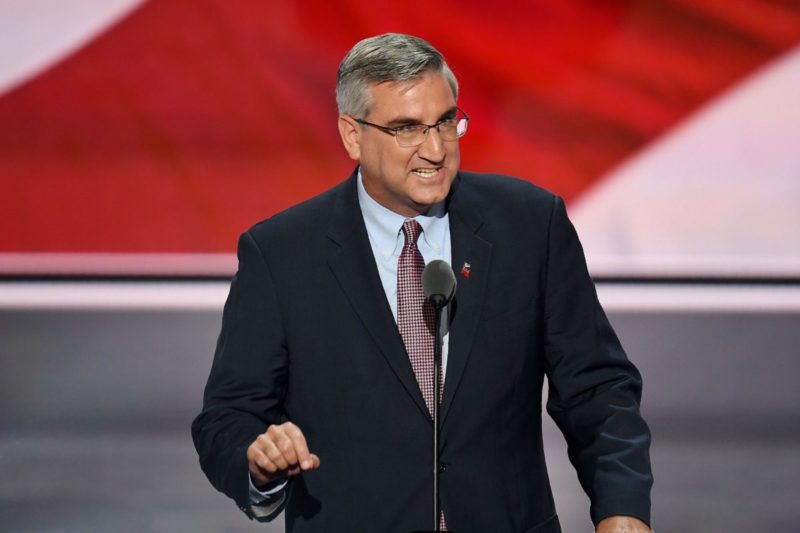Indiana Gubernatorial Race Goes to Anti-Choice Republican
Indiana's Republican Lt. Gov. Eric Holcomb said he supported policies like an omnibus anti-choice law that imposed a range of abortion restrictions.

Indiana’s Republican Lt. Gov. Eric Holcomb has won the state’s gubernatorial race, beating Democratic candidate John Gregg.
Gregg identifies as a “pro-life” Democrat. He lost the gubernatorial bid to Indiana Gov. Mike Pence (R) in 2012.
Holcomb, who took office in March after his predecessor resigned, said in a recent debate that he would work with state lawmakers to craft anti-choice legislation. The Navy veteran and former gubernatorial advisor and chairperson of the Indiana Republican Party said he supported policies like HB 1337, an omnibus anti-choice law that imposed a range of abortion restrictions.
A judge for the U.S. District Court for the Southern District of Indiana ultimately blocked the anti-choice bill, which, among other things, criminalized abortion procedures based on sex, race, and genetic anomalies.
The gubernatorial race in Indiana took an unexpected turn in July when GOP presidential nominee Donald Trump chose Pence as his running mate.
Pence, who served six terms in Congress before winning the gubernatorial race in 2012, had been seeking re-election for his second term. His decision to step aside and join the Republican presidential ticket made way for Holcomb to become the Republican nominee in Indiana’s gubernatorial contest.
Holcomb, a former gubernatorial advisor and chairperson of the Indiana Republican Party, had run unsuccessfully for U.S. Senate.
He was endorsed by the anti-choice Indiana Right to Life PAC. The group’s chairman, Mike Fichter, said in a statement that “The Right to Life community has full confidence that the Holcomb and Crouch team will continue the many pro-life policies enacted by the Daniels and Pence administrations. We believe they will work closely with the pro-life leadership of the Indiana House and Senate.”
Though he is personally opposed to abortion, Gregg has suggested access to health care and contraception are under attack.
Gregg, during the state’s final gubernatorial debate, said he supported funding Planned Parenthood because the money “they get from taxpayers goes to provide birth control, and health screenings, and cutting down on STDs, and mammograms.”
During the debate, Gregg said he would have vetoed the omnibus anti-choice bill that cruised through Indiana’s GOP-held legislature.
Gregg’s running mate, Indiana state Rep. Christina Hale (D-Indianapolis), is known for focusing her legislative work on combating rape and sexual assault, according to the Indianapolis Star.
On matters of equality, Gregg’s campaign site says that if elected he would repeal Pence’s discriminatory Religious Freedom Restoration Act, work with state lawmakers to extend civil rights protections to LGTBQ people, and institute a state government pay equity policy.
He would also seek to expand voter participation in Indiana through the extension of early voting and polling hours, as well as by proposing automatic voter registration and the creation of an independent commission to remove partisan considerations from the redistricting process.
Gregg has worked as a private lawyer and served as Speaker of the House in the Indiana House of Representatives.
